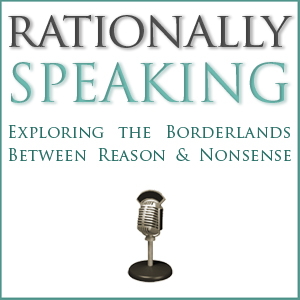Rationally Speaking #32 - Value-free Science?
Rationally Speaking Podcast
New York City Skeptics
4.6 • 787 Ratings
🗓️ 10 April 2011
⏱️ 50 minutes
🧾️ Download transcript
Summary
We all think that science is about objectivity and “just the facts, ma’am.” Not so fast, philosophers, historians and sociologists of science have been arguing now for a number of decades.
To begin with, there are values embedded in the practice of science itself: testability, accuracy, generality, simplicity, and the like. Then there are the many moral dimensions of science practice, both in terms of ethical issues internal to science (fraud) and of the much broader ones affecting society at large (societal consequences of research and technological advances). Then there is the issue of diversity, where until very recently, and in many fields still today, science has largely been an affair conducted by white males. Finally, the issue of which scientific questions we should pursue and, often, fund with public money. And to complicate things further, should scientists consider the societal consequences of their research before deciding to publish?
Transcript
Click on a timestamp to play from that location
| 0:00.0 | Rationally speaking is a presentation of New York City skeptics dedicated to promoting critical thinking, skeptical inquiry, and science education. |
| 0:22.6 | For more information, please visit us at NYCCEptics.org. |
| 0:35.2 | Welcome to rationally speaking, the podcast where we explore the borderlands between reason and nonsense. |
| 0:40.8 | I am your host, Massimo Piliucci, and with me as always is my co-host, Julia Gilef. |
| 0:45.2 | Julia, what's our topic today? |
| 0:47.6 | Massimo, for this episode, we're going to be looking at the extent to which values influence science. |
| 0:53.0 | That's pretty broad, so let me break that down into two topics for us. |
| 0:56.7 | First, we're going to discuss how scientists' own values affect the way they practice science, |
| 1:01.7 | whether those values come from their culture, their race, their gender, their worldview, or anything else. |
| 1:07.7 | And then we're also going to talk about the value judgments involved in deciding as a society what science is actually worth doing. |
| 1:14.7 | Yes, at the very least. I think I have another two or three. |
| 1:17.3 | So where are we going to start? |
| 1:19.8 | Well, to start with the first question of scientists' own values affecting the practice of |
| 1:24.7 | science, a lot of the comment discussion on the podcast teaser |
| 1:28.7 | revolved around the question of whether a more diverse body of scientists, |
| 1:33.0 | diverse in terms of, say, race and gender, I think those were the terms we were discussing, |
| 1:37.7 | would be likely to reduce biases. |
| 1:41.0 | So I believe you were arguing that it would. |
| 1:44.3 | I think the evidence is very definitely in that case. |
| 1:46.5 | So let's talk about some of that evidence. |
| 1:48.5 | So a lot of historians, sociologists, and philosophers of science have put together over the last two or three decades. |
| 1:57.5 | Evidence that that is definitely the case. |
... |
Please login to see the full transcript.
Disclaimer: The podcast and artwork embedded on this page are from New York City Skeptics, and are the property of its owner and not affiliated with or endorsed by Tapesearch.
Generated transcripts are the property of New York City Skeptics and are distributed freely under the Fair Use doctrine. Transcripts generated by Tapesearch are not guaranteed to be accurate.
Copyright © Tapesearch 2025.

